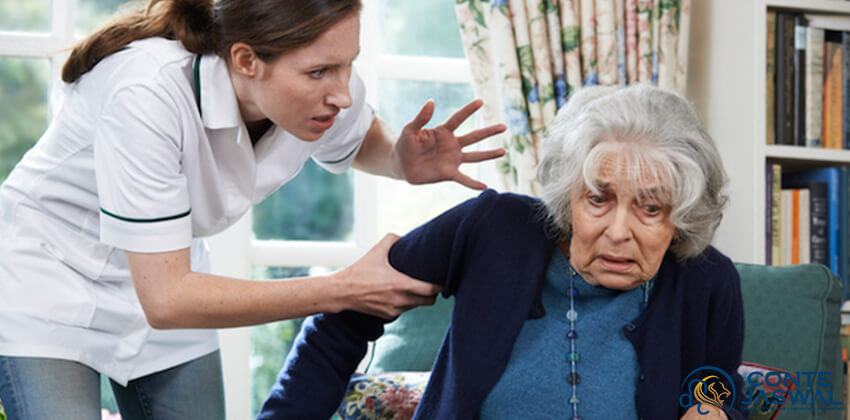As people get older, it’s not unusual for them to need additional help or support. Depending on their needs, this might include help with self-care, medication management or assistance with getting around if they have mobility issues. Hiring a professional caregiver can seem like the most effective way to ensure an elderly parent gets the competent and compassionate care they need but, in some cases, things can go wrong. Sadly, elder abuse isn’t uncommon, and caregivers can sometimes be the perpetrators. To protect your loved ones, take a look at these four signs your elderly parent is being abused by a caregiver:
1. Unexplained or Frequent Injuries
If your parent sustains injuries more frequently than they used to or they have bruises or cuts that are unexplained, it’s important to investigate further and find out if they could be a victim of elder abuse. If a caregiver is intentionally harming a patient or being too heavy-handed when providing physical assistance, they can easily cause injuries.
2. Anxiety or Depression
Changes in a relative’s mood can indicate that they aren’t receiving the right level of care and elder abuse should be considered if your loved one becomes withdrawn or shows signs of anxiety or depression. If your relative is unable to tell you about their experiences, the signs and symptoms of abuse may be present in their behavior. Not wanting to interact with people, losing enjoyment in their usual activities or refusing to socialize can indicate that something is amiss and abuse by a caregiver could be an underlying cause.
3. Weight Loss
If a caregiver is tasked with preparing meals for a patient or assisting them with eating, unexplained weight loss could be a sign that your loved one isn’t getting the nourishment they need. Without assistance, elderly relatives may be unable to prepare or eat a meal, so, if their caregiver fails in their duties, a patient may go without sustenance for extended periods of time. Of course, this can have serious health consequences as it may cause or exacerbate other medical issues.
4. Change in Appearance or Hygiene
When caregivers fail to provide a basic level of care, you might notice that your loved one’s appearance changes or that they’re not as hygienic as you’d expect. Perhaps their caregiver isn’t assisting them with bathing or maybe they are leaving them unattended for too long? In some cases, a caregiver may fail to give medical aids to patients, like dentures or glasses, which can affect their quality of life and harm their health.
Dealing with Elder Abuse
As well as reporting suspected elder abuse to the relevant authorities, you can take legal action with help from Romanucci Blandin nursing home attorneys Chicago. While making a claim won’t undo the harm your relative has suffered, it may help to ensure that other people don’t suffer in the same way in the future. Furthermore, taking legal action can enable the victims of elder abuse to obtain the compensation they deserve and give them the financial freedom to access the best possible care.
